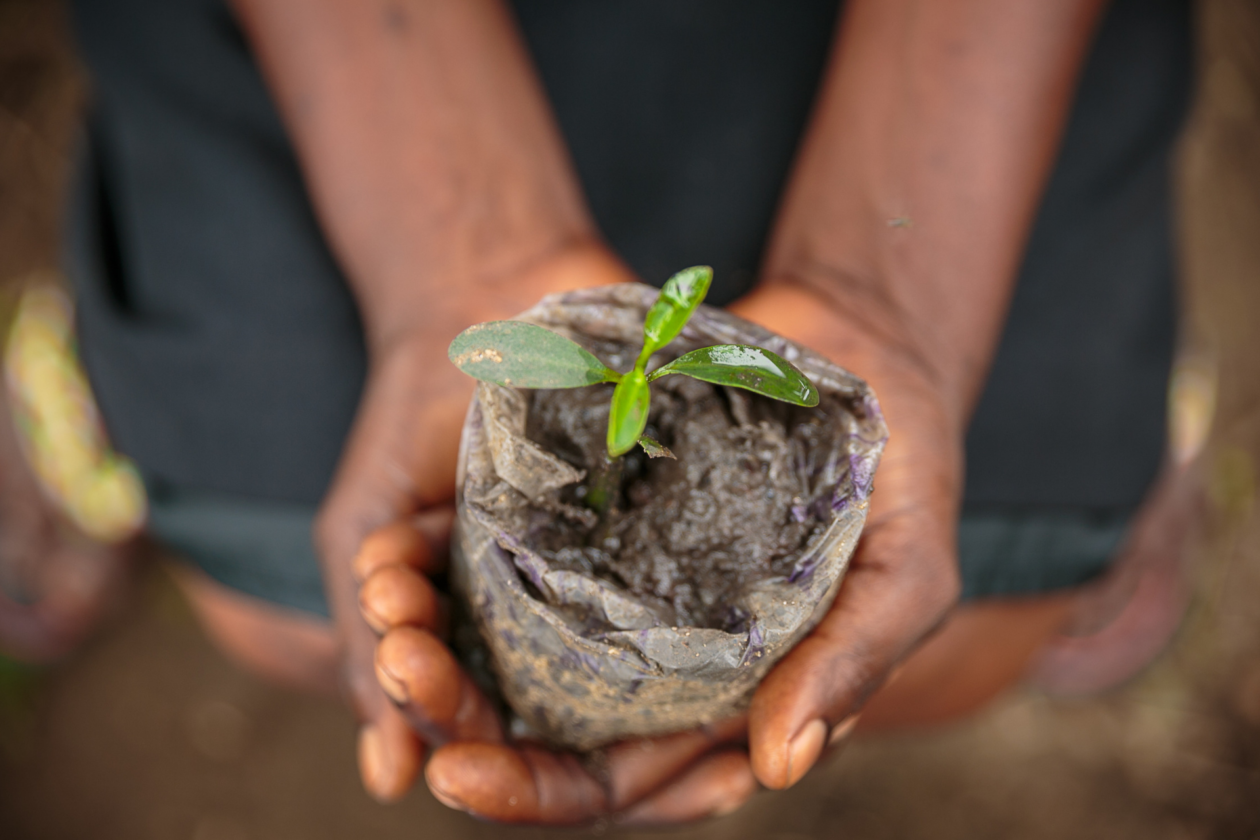By Julia Woods, Communications Specialist

Update: In September 2021, Martha Agbani’s story was featured in the New York Times. Read the spotlight here.
A group of women who call Ogoniland, Nigeria home are determined to return their land and rivers to the beautiful, pristine landscape it once was – before decades of oils spills contaminated their soil and water.
Using funding from Global Greengrants Fund, the women of Ogoni and Lokiaka Women Development Center are preparing to replant mangrove forests that were devastated by years of oil extraction across the Niger Delta.
For decades, Shell Oil spilled millions of liters of oil, contaminating the natural environment and impacting the health of those living in the nearby fishing community. The pervasive, toxic activity in the region rendered vital mangroves, essential to the local fishing industry, burnt, cut, and destroyed.
In 1993, the Ogoni people successfully expelled Shell from their territory, halting oil extraction. In 2011, the United Nations Environmental Programme released a report on the extensive pollution of Ogoniland. The report stated that all water was polluted, and emergency actions should be taken to provide people with clean water.
Yet eight years later, the local people continue to drink the contaminated water. Now, they are taking matters into their own hands.
With $4,000 from Global Greengrants Fund, local women are proactively working to revitalize the ecosystem of Ogoniland. Right now, they are developing a nursery of mangrove seedlings and native fruit trees. Once the oil contamination is cleaned to an appropriate standard, the women will replant the destroyed mangrove forests, which will revitalize devastated fish populations and waterways that locals depend on.
The long-awaited cleanup of Ogoniland, promised by the government, recently began after a 10-year delay. However, the process is moving forward at a glacial pace, especially considering the many decades in which local people have lived with contamination. Local women aren’t waiting around for progress, and they are accelerating the process on the own terms.
Martha Agbani, Executive Director of the Lokiaka Women Development Center, says, “We are forward looking. We read the signs. We have fought against Shell’s pollution. Now we are bracing for the clean-up. We will not be caught napping. No. We have waited for decades, buried several of our relatives and shed enough tears. Now we are ready to press forward. We will not only be part of restoring hope, we will dare anyone to bring about any further pollution in our territory. Enough is truly enough.”
Their struggle is not isolated, as movements worldwide seek to protect their rights to clean water, air, and soil from the sacred mountains of Indonesia to the lush forests of the Amazon. Humanity must unite in this effort to protect our shared planet, which is why we call on you to act today.
This Earth Day, help environmental defenders, such as these local Ogoni women, work towards a cleaner, healthier future for all. Your support will help movements around the world resist dirty development projects, fight climate change, and promote environmental justice.
